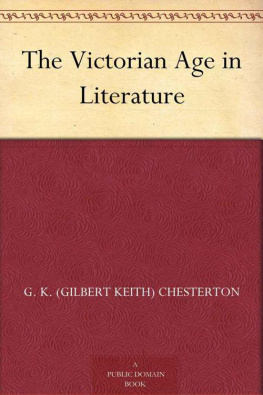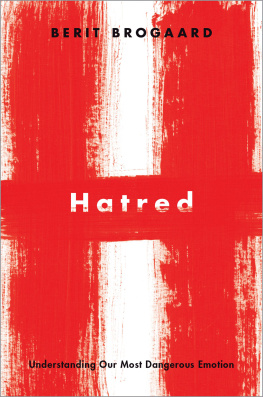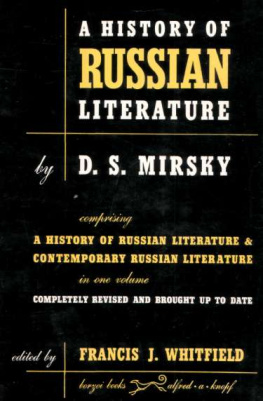The HATRED of
LITERATURE
WILLIAM MARX
Translated by NICHOLAS ELLIOTT
The BELKNAP PRESS of HARVARD UNIVERSITY PRESS
CAMBRIDGE, MASSACHUSETTS | LONDON, ENGLAND | 2018
Copyright 2018 by the President and Fellows of Harvard College
All rights reserved
This book was originally published in French as La haine de la littrature 2015 by Les ditions de Minuit, 7, rue Bernard-Palissy, 74006 Paris.
Jacket design: Jill Breitbarth
Jacket photo: whitemay/Getty Images
978-0-674-97612-2 (alk. paper)
978-0-674-98306-9 (EPUB)
978-0-674-98307-6 (MOBI)
978-0-674-98259-8 (PDF)
The Library of Congress has cataloged the printed edition as follows:
Names: Marx, William, 1966 author. | Elliott, Nicholas, translator.
Title: The hatred of literature / William Marx ; translated by Nicholas Elliott.
Other titles: Haine de la littrature. English
Description: Cambridge, Massachusetts : The Belknap Press of Harvard University Press, 2018. | This book was originally published in French as La haine de la littrature 2015 by Les ditions de Minuit, 7, rue Bernard-Palissy, 74006 Paris. | Includes bibliographical references and index.
Identifiers: LCCN 2017019208
Subjects: LCSH: CensorshipHistory. | Prohibited booksHistory. | Literature and moralsHistory. | LiteratureHistory and criticism.
Classification: LCC PN45 .M387313 2018 | DDC 801/.9dc23
LC record available at https://lccn.loc.gov/2017019208
IN MEMORIAM
Michel Lafon (19522014) and Pierre Mnard, anti-anti-littrateurs
The hatred of literature! The hatred of literature!
GUSTAVE FLAUBERT
Where does this hatred of literature come from? Is it envy or stupidity? Both, probably, with a strong dose of hypocrisy on top.
GUSTAVE FLAUBERT, letter to Princess Mathilde, July 2, 1867
They copied everything they stumbled upon.
Specimens of every style, agricultural, medical, theological, classic, romantic, periphrases.
Parallels: crimes of the peopleof kingsbenefits of religion, crimes of religion.
Beauties. Make a universal history of beauties.
Dictionary of accepted ideas. Catalogue of fashionable ideas.
GUSTAVE FLAUBERT, notes for Bouvard and Pcuchet
Contents
LITERATURE IS A SOURCE OF SCANDAL. It always has been. This is what defines it.
Reader, be warned: if you do not want to be scandalized, throw out this book before it is too late. Otherwise, welcome. But be aware that the scandal will not always be where you expect it.
A NTI-LITERATURE is the term used for any discourse that is opposed to literature and defines it through the process of opposing it. Literature, then, is any discourse to which anti-literature is opposed. There is no literature without anti-literature.
Lets explore this circle.
WHAT IS LITERATURE? Too many things: no object that has remained identical through the centuries can claim this beautiful name. The reality is so diverse, the name so flatly constant. Yet we use it, without much concern, to refer to texts dating back three thousand years in the Western world. (Mesopotamia and Egypt would take us further back in time; they could easily be included in this vast and flexible denomination.)
This book also uses the word literature, for lack of another currently available term and out of linguistic convenience, with the understanding that it does not imply a univocal reality.
What could possibly allow us to group together three thousand years of poetry, fiction, and theater, Homer and Beckett, Aeschylus and Bolao, Dante and Mishima? In logical terms, nothing at allexcept for the fact that this discourse has been kept apart from all others and has met with constant opposition. It has been a permanent opponentpublic enemy no. 1the thing we most love to scorn, attack, and belittle.
Literature is always the weakest, most suspect discourse, the one that is always on the verge of going out of fashion and being left behind. Other discourses have a positive identity, which, although sometimes questioned, is always asserted: philosophy seeks wisdom, science the truth of nature, theology the knowledge of God, etc. Only literature lacks its own objects. It had some once, but they were stolen.
SURELY YOURE EXAGGERATING! Other discourses have faced constant attacks, starting with philosophy. Socrates was the first martyr, dont forget, and many others followed.
Yes, but Socrates attacked Homer, and Homer hadnt attacked anyone.
PHILOSOPHY WAS BORN by clashing with the discourse that came before it, denying it any claim to authority, truth, or morality. In so doing, it implicitly defined some of the most salient features of literature.
In Archaic Greece, poetry was the discourse of the Muses: words of truth, inspired by the Muses. At the time, there were only two fundamentally reliable discourses: that of the law, and that of the Muses. Any other discourse aspiring to a place of honor had to position itself in relation to these two. This is exactly what Plato did in The Republic, by inventing new laws and exiling the poetstwo closely related acts. It is no accident that condemnations of poetry run as a leitmotif through Platos dialogue.
What followed is well known: the poets wound up naked and poor, and this asceticism became their fate. Or, to put it another way, literature is what remains when everything else has been removed.
WHICH IS NOT TO SAY that writers have not taken a stab at criticizing discourses: Aristophanes attacked philosophers, Molire reviled physicians, Flaubert assailed the positive sciences, and, more recently, Jean-Charles Massera and Michel Houellebecq have taken on the dominant ideologies. But this critical discourse is not foundational.
Literature can also occasionally lash out at itself: there are no fiercer or more justified attacks than those by writers, from Don Quixote to Witold Gombrowicz, from Paul Valry to the surrealists. These attacks, during certain periods of crisis, have to do with championing a different kind of literature, pushing literature to evolve, or inventing another ideal.
I discussed these internal attacks at length in my book LAdieula littrature
IN THE OPPOSITION to other art formsmusic, painting, sculpturesomething different is at stake. In this case the front is clearly defined: the opposition does not encroach upon its opponents territory or turn its own weapons against it. Anti-music
Here, on the other hand, confusion reigns: anti-literary discourse and literature share a medium, the medium of language, and the result is a fratricidal struggle to occupy the territory and symbolically mark itan effort that must constantly be renewed. The first battles do not prevent later incursions or provocations, and hostilities are resumed ad infinitum.
REPEATED THEFTS, attacks at every opportunity, and verbal, rather than physical, assaults: since Platoand even a little earlier, if one includes Heraclitus and Xenophanes of Colophonthe aggressors have had a field day. The wildest, most absurd, and most ridiculous arguments have been used to denounce literature.
Sometimes these discourses provide an implicit description of the literature of their time: they outline its ambitions, its powers, and its failures; they express expectations for literature, which naturally are never met; and, paradoxically, they enable a deeper understanding of the very literature they attack, as well as its ideological context.
But most of the time, as with every kind of madness, repetition rules; the same arguments are brought up over and over again. Plato already uses nearly all of them.
For anti-literature is anything but a reasonable discourse: it is a foundational scene that everyone wants to reenact at one point or another, to gain status or simply to exist. Literature serves as an ideal target, a punching bag, a foila springboard.




